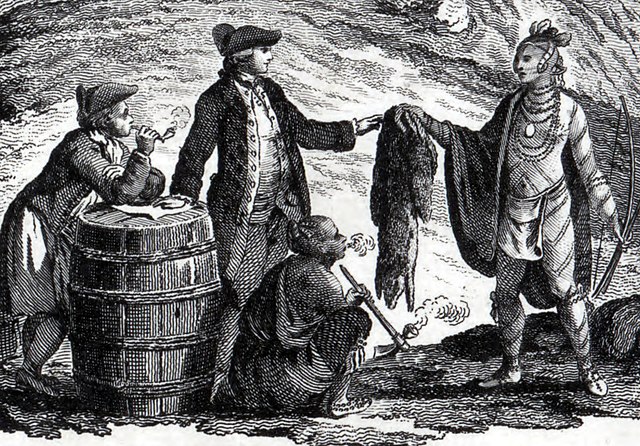Pidgin
simplified language that develops between groups of people that do not have a language in common From Wikipedia, the free encyclopedia
Remove ads
Pidgin (or pidgin language) is a simplified language that evolves to make communication easier between groups with no common language. Pidgin uses a combination of different languages, simplified grammar, and reduced vocabulary. This makes it easier to learn and use.


Usually, pidgin languages develop for a specific purpose, like trade. They often emerge through slavery and/or colonization. When people speak a pidgin as their first language, it evolves naturally into a Creole language.
The term "pidgin" originates from the Chinese word pídīng, meaning "business" or "trading."
Remove ads
Features
To make communication easier, pidgin languages often have elements (like vocabulary and basic grammar) that come from multiple languages.
Pidgins are typically used in specific situations (like trade), and not as first languages. Pidgin speakers usually maintain their native, non-pidgin languages. For this reason, pidgins are not as complex or stable as fully developed languages.[1][2][3]
Pidgin and Creole languages
Pidgin languages develop before Creole languages.

Pidgin vs. Creole
Pidgin
Pidgin languages are simplified so it is easier to learn and use them. They have:
- Simplified grammar
- Reduced vocabulary
- Elements from multiple languages
Over time, as pidgin languages become more stable and are passed on to the next generation as a native language, they can evolve into creole languages.
Creole
Creoles are fully developed languages with their own grammar, vocabulary, and syntax. They often include elements from the pidgin's parent languages, but they also have their own unique features.
Creole languages arise when children speak pidgin as their first language and use it for all purposes - not just its original purpose (like trade). Thus, pidgin languages serve as simplified contact languages for immediate communication. However,

Creolization
Pidgins become Creole languages when they become more stable, and when there are native speakers who use pidgin as their first language.
As pidgin languages are passed down through generations, they undergo a process of creolization. This means they develop more complex grammatical structures, expanded vocabulary, and clearer phonological features.
This process of creolization often occurs over generations as children learn the pidgin as their first language. As it is used regularly, the language evolves naturally.[4]
Remove ads
History
English sailors and traders in the 18th century used pidgin to communicate with Chinese merchants.
As colonial powers expanded their influence, pidgin languages emerged around the world, including the Pacific Islands, Africa, and the Caribbean. They often developed as a result of interactions between indigenous peoples, Europeans, and enslaved Africans. Pidgin languages made it possible for these people to communicate with each other without first learning each other's languages.
Countries that use pidgin
Countries that use pidgin languages as their official languages include Papua New Guinea, Jamaica and some other Caribbean and Central American countries:
*Language data changes daily and should not be used as exact numbers
Remove ads
Examples
Creole phrases
- "Mwen renmen ou" (Haitian Creole) - "I love you"
- "Mi famili come lebon" (Tok Pisin) - "My family is good"
- "Mi go fit gari" (Nigerian Pidgin) - "I will eat gari"
- "Nou ka manje manje" (Seychellois Creole) - "We are eating food"
- "Mi papa bin sabi book" (Cameroonian Pidgin) - "My father knows how to read"
Pidgin phrases
- "Me like go market" (Nigerian Pidgin) - "I want to go to the market"
- "You come yesterday?" (Tok Pisin) - "Did you come yesterday?"
- "Mi no sabi speak English well" (Cameroonian Pidgin) - "I don't know how to speak English well"
- "Him big pass you" (Jamaican Patois) - "He is bigger than you"
- "Mi want chop" (Sierra Leonean Krio) - "I want to eat"
Remove ads
References
Sources
Wikiwand - on
Seamless Wikipedia browsing. On steroids.
Remove ads





